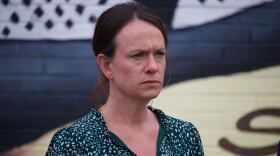-
Among their priorities are enhancing patient data privacy and strengthening protections for out-of-state providers, particularly those treating patients via telehealth.
-
Connecticut Gov. Ned Lamont and abortion rights advocates marked the third anniversary of the U.S. Supreme Court’s Dobbs decision by highlighting the state’s efforts to strengthen abortion rights at the State Capitol in Hartford on Tuesday.
-
New Yorkers for Equal Rights hosted a virtual rally urging residents to vote “yes” this November on Prop One: the Equal Rights Amendment.
-
University health care experts and students were at the Connecticut State Capitol on Wednesday to talk about how schools were supporting reproductive health care, especially after the overturn of Roe v. Wade.
-
June 24 marks two years since the Supreme Court released the Dobbs decision, overturning Roe v. Wade and the nationwide right to an abortion.
-
The March for Life drew more than 1,500 people who called on CT to halt a proposal to enshrine reproductive rights in the state Constitution.
-
Connecticut’s top Democratic lawmakers are in favor of amending the state’s constitution to codify the right to an abortion. But members of the Reproductive Rights Caucus say the amendment is not necessary because it's enshrined in state law.
-
Roe v. Wade was overturned in 2022, giving states the right to restrict and ban abortion. The right to an abortion is enshrined in Connecticut’s constitution, and the state has worked to expand access to reproductive health care.
-
Advocates and Democratic legislators said they remain committed to preserving reproductive rights in Connecticut on Thursday, denouncing “draconian” efforts to ban abortion in other states.
-
New York Attorney General Letitia James has sued Red Rose Rescue for blocking access to two reproductive health care facilities on Long Island. She wants the court to create a 30-foot buffer zone around clinics.
Play Live Radio
Next Up:
0:00
0:00
Available On Air Stations










